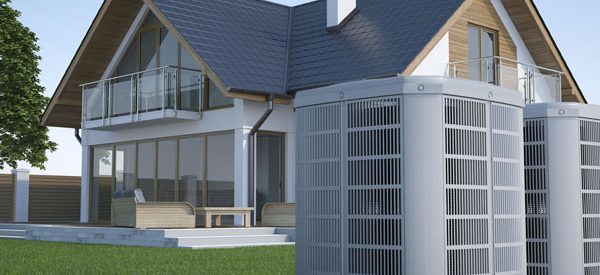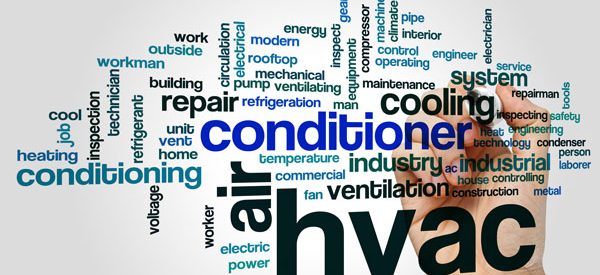


OBTAIN 3 QUOTES FOR YOUR HEAT PUMP OR AIR-CONDITIONING
The best HVAC systems for Heating and Cooling in Ottawa

Every homeowner in Ottawa prepares for winter by making sure the home’s heating system is ready for ice, snow, and sub-zero temperatures.
It is very important to be comfortable throughout the long cold months with an efficient heating system. Would you like to upgrade your existing gas furnace or install radiant heating? Are you experiencing issues with your current furnace or boiler and suspect that repairs are needed?
Whatever you need for your HVAC system, our HVAC partners in Ottawa will be happy to help you.
For your heating requirements, you can choose from a wide array of products and services from our reliable HVAC partners:
- Repair or installation
- Gas furnaces and boilers
- Oil to gas conversion
- Electric to gas conversion
- Humidification system
- Filtration system
For your safety and peace of mind, make sure to work with a licensed and experienced HVAC company serving your area.
If you want to get accurate quotes to compare, please fill out the form on this page. You will receive FREE and NO COMMITMENT quotes from top HVAC contractors in Ottawa.
How does furnace replacement work?

How is your heating system in the home? Everyone knows that a heating system is an essential life support system during cold Ottawa winters.
It is safe to say that a furnace, boiler, or heat pump sustains Canadians through tough and unpredictable weather. Hence, you must ask yourself:
Is it time to replace your furnace?
If a furnace is 20 years or older, it is time to get a replacement. A heating system has a maximum life expectancy of 25 years but not all systems last as long. If your furnace is old and near breaking point, you could actually experience a furnace problem in the middle of winter which is not good.
If you have a 15-year-old furnace and repairs will cost a lot, it may be smarter to just install a new one which will last you another 20 years. Repairing your old furnace multiple times is not going to be worth it.
Lastly, if you are paying higher energy bills than expected, your furnace may be using more energy than needed. Replacing it with an energy-efficient model will save you a lot of money in the long run.
Is your home properly insulated?
Any talk of energy efficiency when it comes to your heating system is useless if your home is not properly insulated. By increasing your attic’s insulation to recommended standards, you can save a lot of money – enough to pay for a shopping spree or a weekend getaway.
A poorly insulated house will have drafts and cold zones, preventing you from getting the most out of your heating system.
An HVAC contractor can provide you with reliable and expert advice regarding your home’s insulation and how to make the most of your heating system.
What energy sources works best for you?
A home’s heating system doesn’t make the heat. Rather, it transforms one energy form into another to provide warmer air. Popular heating sources are propane, natural gas, electricity, and oil.
It is important to understand that the cost of one energy source can be very different from another.
Gas furnace
A gas furnace is very common throughout Canada because it offers a reliable and safe heating solution. Many advanced systems have smart thermostats that make then more efficient and easy- to -use.
New gas furnaces have efficiency ratings of 92% to 98% AFUE which assures you that you won’t be paying too much for your energy bill.
Depending on your area, gas furnaces generally cost less to operate than propane or oil.
They require ducts to distribute the heat in the house. They are also larger than ductless mini-split systems and will need more space.
Propane furnace
Many homeowners in rural areas or where fuel is scarce can opt for propane furnaces. A propane tank is installed outside the home and refilled by a local provider.
This type of furnace meets the required minimum efficiency standard of 92% and many have AFUE ratings that go as high as 98.5%. They are, however, more expensive to operate than gas furnaces but cheaper than electric systems.
A propane furnace will also need ductwork to distribute heat around the home and require regular inspection by certified professionals.
Oil furnace
If you are located in an area when gas and other fuel is difficult to obtain or expensive, you can choose an oil furnace.
It is readily available throughout Canada but less popular because of operating costs, emissions, and efficiency.
A tank to hold the fuel is also installed outside the home and ductwork is used to distribute the heat throughout the house. Like propane systems, an oil furnace must have regular inspection.
This type of furnace is a good choice if other fuel options are unavailable. The home’s temperature can be controlled via smart thermostat.
Electric furnace
An electric furnace moves hot air through ductwork with a fan but rather than gas, oil, or propane, it produces heat with electrical heater elements managed by a circuit breaker.
The operating cost of an electric furnace is higher, making it less popular as a heating system.
Its advantages include almost no emissions and can use renewable sources like fossil fuels. A chimney is not required; hence, installation is less expensive.
Before buying an electric furnace, compare with heat pumps and other electric options such as baseboard heating.
Heat pumps and boilers

Depending on your budget, your home, and the efficiency you desire, a furnace may not be your ideal option. Other heating options to consider are heat pumps and boilers.
Air source heat pump split systems are modern, compact, and uses refrigerants for cooling and heating. They consist of outdoor units (1 or more) called heads. A bigger home may need several heads to maintain desirable temperature throughout the home.
Some of the benefits of heat pump split systems include:
- Fast installation
- No ductwork (ideal for condos and older houses)
- Highly-efficient and uses clean energy
- Less expensive to operate compared to electrical systems
However, the upfront costs for heat pump installation are higher than gas furnaces. Some models don’t manage humidity as well as other types of systems. More often than not, a back-up heat source is necessary.
Central air source heat pumps are a lot like splits but they use ductwork to distribute heat and cool air around the home. They use a condenser outside and an indoor unit referred to as an evaporator coil. It uses clean energy and works efficiency like a traditional furnace.
The upfront cost of installing a central air source heat pump is high. Ductwork required for this system is unique and may need certain renovations. A back up heat source may also be necessary.
A geothermal heat pump is a sophisticated system for heating and cooling. The pumps convert the temperature in the home by moving the heat between the home and the ground.
This type of system uses clean energy and has one of the lowest costs for cooling and heating. They work well with radiant and hydronic systems and do an excellent job in hot or cold climates.
They also last longer than other systems with less maintenance required. Further, they have quiet operations.
Boiler systems, also referred to as hydronic systems, provide heat from a fuel source (water or glycol) which is pumped throughout the house with radiators or heating loops.
A boiler system does not need ductwork and is very popular in older houses.
Some boiler systems are called combi-units because they can also provide hot water. These are very efficient systems because they provide your heating and hot water requirements.
Boiler systems usually have higher upfront costs compared to a traditional furnace and their parts can be expensive to replace. They also cannot cool your home.
Don’t hesitate to ask questions from a reliable HVAC contractor so that you will clearly understand your options and make the smartest choice.
When choosing a new furnace, make sure to get an ENERGY STAR rated unit for higher energy-efficiency.
To plan your furnace or boiler replacement, you need to find an HVAC company you can trust. Fortunately, we can help you save time because our network consists of licensed and insured HVAC professionals you can trust.
Just fill out the form below to receive competitive quotes for your HVAC needs, free of charge!
Guide to Air-conditioning system replacement in Ottawa

Winters are cold but summers can be hot and humid. When the weather is uncomfortably hot, you need to stay cool during the day and sleep well at night. In summer, it is essential to have a good air-conditioning system.
Modern systems have become more efficient than ever before. If you need to replace or upgrade your existing cooling system, find out what your best options are so you can save money for many years.
So how do you get started and how do you choose the best cooling system for your home?
First of all, it is important to know your options and to find a reliable HVAC contractor to assist you in choosing the right type of system and size for your needs
Cooling systems available for you
Depending on the size of your home, your needs, and your budget, there are several options for your to choose from.
Central air-conditioning system
Central air-conditioning system is a very popular cooling option. It consists of an external condenser located outside the house to expel heat and an evaporator coil which is typically situated above a furnace and cools the air inside the house.
A furnace works with the AC using a fan to blow cool air throughout the house through the home’s ductwork. This type of system is integrated with a furnace system to take advantage of the furnace filter and other air purifying equipment you have installed to keep the air inside the home clean at all times.
This type of cooling system provides cool air throughout the home, not only in selected rooms, which makes it a cost-effective cooling solution.
You can control your air-conditioner from a mobile device and setup a schedule of your preferences for convenience. It will also help you save on your monthly energy bills.
Ductless air-conditioners
Ductless air conditioners are ideal if your home does not have ductwork such as in older homes.
A ductless split system may use multiple heads or indoor units to cool the air. They are wall-mounted, on the floor, and even the ceiling. The head cools the air in the part of the home where it is installed, making it possible for you to set different temperatures for multiple rooms.
It will be necessary to put a hole in the exterior wall to run the conduit between the outdoor and indoor unit.
Heat pumps
While an air-conditioner moves heat in one direction, a heat pump can reverse and pump heat in two directions. It works as a heater and an air-conditioner which allows a homeowner to cool and heat without a furnace until it becomes very cold outside.
Heat pumps use electricity and works in tandem with a furnace. In summer, the heat pump works like a conventional air-conditioner and cools the home. During the colder months, it reverses the heat extracted from the outdoor air and brings it into the home. The furnace will take over the function of heating only when the outside air gets too cold.
So, despite its name, a heat pump can also provide your cooling needs.
In parts of Canada where the climate is colder, geothermal heat pumps are quite popular. Although the initial investment for a geothermal heat pump is higher than an air-sourced system, the long-term savings in energy are significant.
Portable air-conditioners
Portable or windowless air conditioners can be moved from one area to another but they need venting to expel the hot air and moisture. Placed on the floor in the room you want to cool, the heat is discharged from a vent kit that is part of the unit. Portable systems are noisier than other types of cooling systems because the evaporator fan works constantly. They also take up floor space and may affect the style and function of one of your home’s windows.
This type of system is ideal for cooling a small space as their output capacity is from 11,000 to 14,000 BTU, enough to cool from 500 to 700 square feet.
They are also easy to set-up and install and can be stored during winter.
The standard types of portable air conditioners will have a container insider to collect water. Depending on the level of humidity, it may necessitate emptying the container twice a day and could disrupt the run time of the unit.
There are high-end portable air-conditioners that evaporate moisture and push it through an exhaust hose used to expel the heat from inside to outside. This type of portable air-conditioner is more expensive.
An HVAC contractor can help you determine the right type and size of air-conditioning system that will work best for your home using the following factors:
- How many rooms does your house have?
- What is the size of the home?
- What kind of windows do you have?
- What insulators are used in your ceiling and walls?
- Heat loss assessment performed by a qualified contractor
You need to make sure a licensed technician will recommend the right size of unit for you to lower your cooling costs and make the system last a long time.
Ottawa Rebates for Heating and Cooling Systems
Some utility company and HVAC government rebates and programs are available to qualified Ottawa residents to offset the cost of an HVAC upgrade.
You can get up to $5,000 in rebates if you upgrade at least 2 HVAC products in your home. You can qualify to get a check from Enbridge to finance your project. Qualified gas products include:
- Furnace
- Gas Boiler or
Water Heater - Insulation, air sealing, and window upgrades
You can qualify for $400 to upgrade to an ENERGY STAR® qualified natural gas water heater. For more information, you can check Enbridge Gas Home Efficiency Rebate Program.
Union Gas
If you use electric heating, you can also take advantage of a rebate from Union Gas for up to $5,800 when you purchase a qualified air-source heat pump.
A qualified local contractor can advise you about the best model and requirements needed and even apply on your behalf.
You can get from $1,900 for a ductless Air-source heat pump, single head, no air-conditioning) or up to $5,809 for a ductless ASP (multiple head).
Ontario Energy Efficiency Rebates
If you purchase a brand-new high-efficiency furnace with an ECM, you can get a $250 rebate and save about $20 on your monthly bill.
If your home is electrically heated, you can get up to $4,000 when you buy a high-efficiency heat pump and an additional $50 rebate on a smart thermostat.
Energy Star central air-conditioning systems also quality for up to $600 rebate.
You can work with a certified HVAC contractor to take advantage of this rebate.
Get started by filling out the short online form below to connect with our qualified HVAC partners in Ottawa.
How much is a central air-conditioning system in Ottawa?

If you are thinking of buying a new central air conditioner, it is smart to invest in energy-efficient systems to decrease your monthly bills. With summer temperatures rising, many residents in Ottawa prefer a central air-conditioner with 14-18 SEER which stands for Seasonal Energy Efficiency Ratio. This provides optimum efficiency and a higher return on your investment.
A high-efficiency central air-conditioning system in Ottawa could cost you from $2,700 to $7,500, depending on the model of your choice. Other factors that will affect the final price also include your location, the size of the unit, and your choice of HVAC contractor.
Your local HVAC supplier will inform you of the right size needed based on the size of the area you want to cool.
FAQS about heating and cooling systems in Ottawa

To guide you in your search for the right furnace or air-conditioner for your home, we have put together some FAQS.
The information below will be very useful for you in finding the right system, calculating the cost, and planning your project.
How does a furnace work with a central air-conditioner?
A central air-conditioner uses the blower of a furnace to circulate air. Both the AC and furnace use the ductwork to allow cool and warm air to circulate throughout the house.
What is single-stage and 2-stage central air-conditioning?
The outdoor unit can have a 2-stage capacity with a compressor. A 2-stage unit runs at lower capacity when it is humid and runs at full capacity for short intervals. A 2-stage air-conditioner works well to create a comfortable indoor environment.
What is SEER and why is it crucial when choosing an air-conditioner?
The seasonal Energy Efficiency Ratio rates the energy-efficiency of a particular air-conditioner model. The higher the SEER, the higher the efficiency of the unit. This is important because it also directly affects the cost of operating your system.
Of course, other factors including the proper installation of your unit also affects its overall performance.
What are some of the top brands for furnaces?
You will find many brands of furnaces in the market. Some of the popular ones are Carrier, Goodman, Amana, Lennox, Keeprite, Bryant, and American Standard. Each brand has a different price point so it is important to shop for a furnace by comparing multiple quotes.
Why is it important to hire an HVAC contractor to install a furnace?
A professional furnace installation is as important as buying the right type of furnace. A professional can give you valuable advice in choosing your heating system and making sure that it is installed and running efficiently. An improper installation can lead to short and long-term problems which will cost you more money in the end.
What are the important criteria for choosing the best furnace for my home?
Buying a new furnace is an investment which will also affect the quality of your life. You should consider the following when making a decision:
- The type of fuel that works best for your home
- The energy-efficiency of a furnace model you are considering
- Output capacity based on the size of the area where you need heating
How often is furnace servicing required?
A furnace servicing is recommended once a year to keep it running efficiently and extend the system’s life. It will also allow you to check its components and avoid a sudden breakdown mid-winter.
Will upgrading my heating and air-conditioning system improve the value of my home?
Upgrading your furnace and air-conditioning system will definitely help you to sell your home faster and for a better price. Homebuyers prefer a home with an efficient cooling and heating system. The personal comfort and satisfaction you will derive from these upgrades while you live in your home will also be worth it.
What efficiency rating or AFUE should I choose when buying a furnace?
In general, a furnace must have at least an AFUE of 90% based on Canadian standards. However, many top-of-the-line models in the market offer AFUE ratings of 95% to 98% for maximum efficiency.
Compare the best Furnace or Air-conditioning system with free quotes
You can easily shop for a furnace or air-conditioner without stepping out of your home!
Save time and money when you use our short online form to connect with reputable and experienced HVAC contractors in Ottawa!
Receive FREE and NO COMMITMENT QUOTES you can compare in the comfort of your home. Our process is 100% contactless and our partners will communicate with you via phone or email.
Get professional advice to install the right heating or cooling system that meets your needs and budget.
Fill out the form below and find the right air-conditioner or furnace to keep you comfortable all-year-round at the most affordable price.
Comments are closed.



OBTAIN 3 QUOTES FOR YOUR HEAT PUMP OR AIR-CONDITIONING
Copyright© 2024 Compare Home Quotes.
Oolong Media






